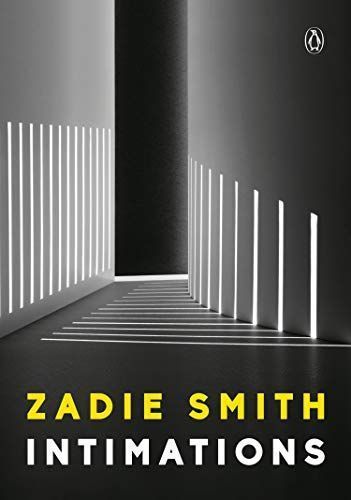
Intimations Six Essays
Deeply personal and powerfully moving, a short and timely series of essays on the experience of lock down, by one of the most clear-sighted and essential writers of our time "There will be many books written about the year 2020: historical, analytic, political and comprehensive accounts. This is not any of those -- the year isn't half-way done. What I've tried to do is organize some of the feelings and thoughts that events, so far, have provoked in me, in those scraps of time the year itself has allowed. These are above all personal essays: small by definition, short by necessity." Crafted with the sharp intelligence, wit and style that have won Zadie Smith millions of fans, and suffused with a profound intimacy and tenderness in response to these unprecedented times, Intimations is a vital work of art, a gesture of connection and an act of love -- an essential book in extraordinary times.
Reviews
Alesha Clifford@aleshadclifford
Gelaine Trinidad@gelaine
Angelyn Francis@angelynsayshi
Hannah Yoon@yoonreads
Isabella @iscbella
Elena Kuran@elenakatherine
Natalie@nyc
iamazoo@iamazoo
Lila R E@lilaklara
parker@parkerparks
Isabella@isabellareads
Katie Chua@kchua
Trever@kewlpinguino
p.@softrosemint
Fraser Simons@frasersimons
Samantha Alukas @samalukas
Julia Briganti@bookedwithjulia
Shelby Doherty@dohertys17
Bec@becandbooks
Hazel Evans@hzlvns
Laura Kim@Lauracate
amy jacobowitz@amyjacobowitz
Allegrachatterjee@allegra
Ali Angco@aliangco
Highlights
Helen @helensbookshelf
Helen @helensbookshelf
Helen @helensbookshelf
Helen @helensbookshelf
Helen @helensbookshelf
Helen @helensbookshelf
Shelby Doherty@dohertys17
Shelby Doherty@dohertys17
Shelby Doherty@dohertys17
Shelby Doherty@dohertys17
Shelby Doherty@dohertys17
Shelby Doherty@dohertys17
Shelby Doherty@dohertys17
Shelby Doherty@dohertys17
Shelby Doherty@dohertys17
Shelby Doherty@dohertys17
Shelby Doherty@dohertys17
Shelby Doherty@dohertys17
Shelby Doherty@dohertys17
Shelby Doherty@dohertys17
Shelby Doherty@dohertys17